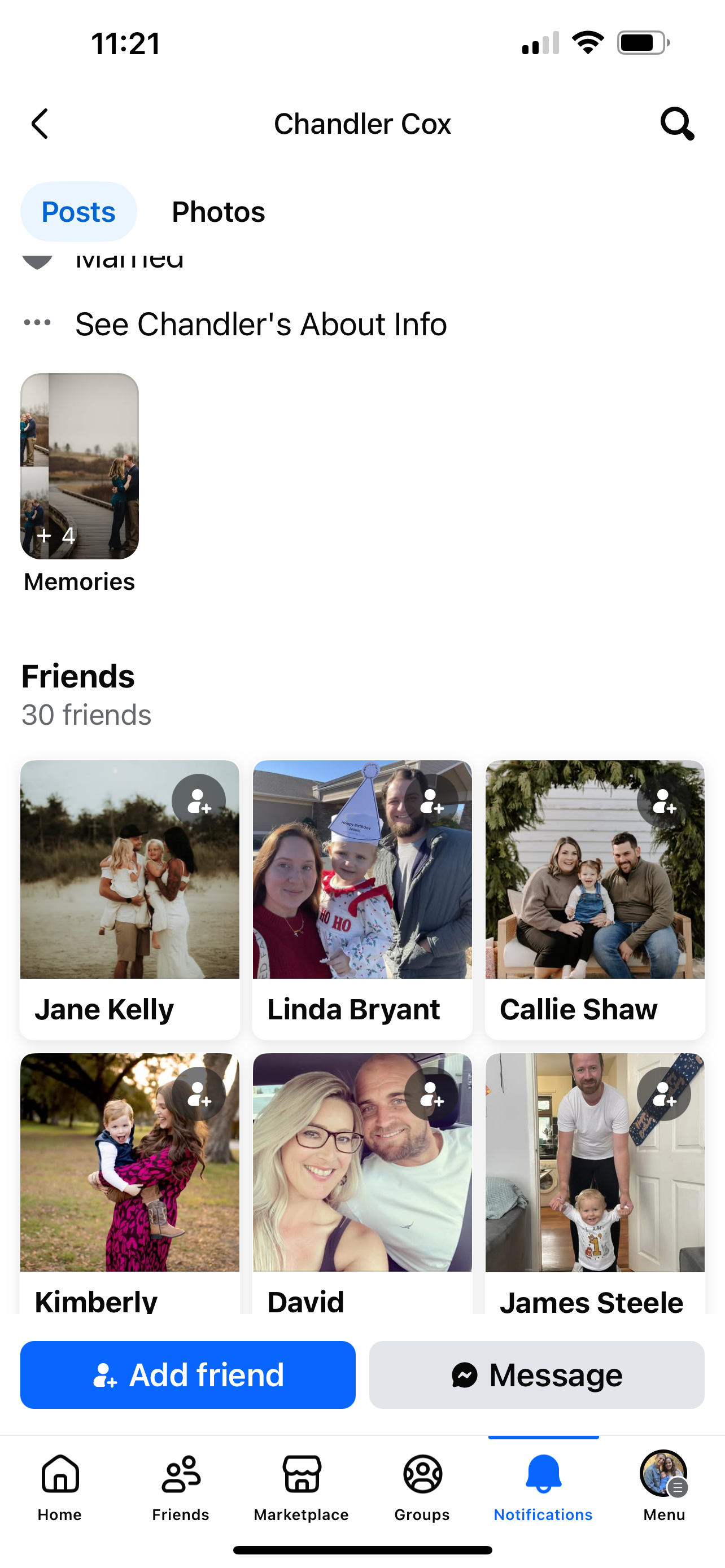Recent Spam My Clients Received
The spam trends of old divorced men targeting women, and young international women targeting men continue on. Do not accept friends requests from profiles that are new, have a limited number of friends, or is from someone you don't recognize.
The three images below are example of FAKE Facebook profiles. They’re tricky to spot and Facebook will not remove them if reported. How you can tell: they all have the same friends and every photo has the same likes/comments from the sale 8-10 people - which are all other fake accounts. Tricky, right?
I’ve seen these pages trying to join local groups to sell services such as vent cleaning. Very random but who knows what else their objectives are. Remove, report, block!
On a similar note, below is an example of what it looks like when Meta contacts you to authenticate your account. The two images below are NOT spam.
DO NOT rely solely on the logo, contents of the email, name of the sender, or the subject line. Always look to the sender email address. That is the only part of the email that is impossible to replicate.
I’ve spoken to four business owners in 2025 already who have had their account hacked because they clicked on links sent to them via messenger or email that were not actually from Meta.
Whether you have an email in question from Meta or another social channel, PayPal, Docusign or others, always verify the sender email address. Do not click links unless you are expecting communication from that sender, and run it by a trusted associate or assistant when you have doubts.
I also recommend turning on two factor authentication for all of your accounts, including your email. It is incredibly difficult and time consuming to recover a social media account once it has been hacked.
Stay safe out there, friends.
-A




